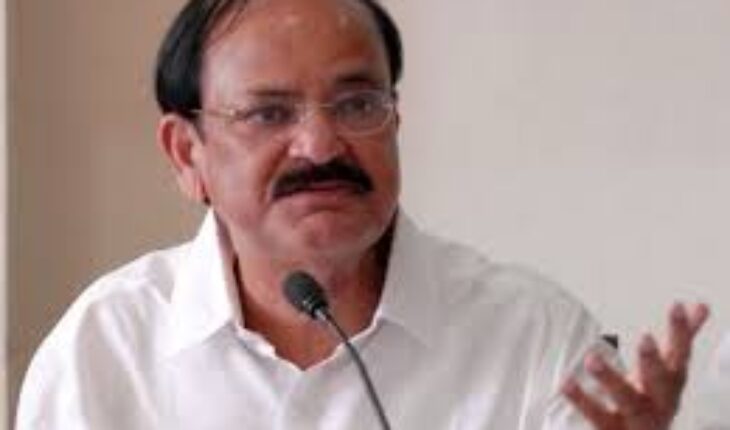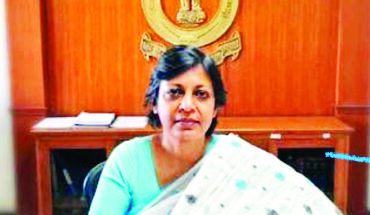By Dominick Rodrigues
Vijaywada: Vice President M. Venkaiah Naidu made a clarion call for production of eco-friendly, biodegradable plastics alongside a mass media campaign for behavioural changes in public disposal of plastic products.He was addressing students , faculty and staff of the Central Institute of Petrochemical Engineering & Technology (CIPET)
Expressing concern about the environmental challenge posed by durability and longevity of plastics, the Vice President urged for following best practices of plastics waste management amidst the importance of the 3Rs – Reduce, Reuse and Recycle. Besides the Swachh Bharat Mission, a similar nationwide education campaign on single use plastics is needed in which media, civil society organisations, students and activists are an integral part for leaving a clean and green planet for our children.
“The plastics recycling market in India is estimated to grow at a rate of 6.5 % to attain a market size of 53.72 billion dollars by the end of 2023, and waste management presents a golden opportunity for our entrepreneurs,” he said while praising CIPET for establishing a model Plastics Waste Management Centre at Guwahati, which focuses on offering skill development training programmes in the areas of plastics recycling and waste management.
Describing polymers as ‘wonder’ materials in increasing quality of life immensely due to their low weight, durability and resourcefulness, he said that their versatility and advancements in cost-effective manufacturing techniques have led plastics to replace the conventional materials in different walks of life.
The ongoing COVID-19 pandemic has witnessed plastics being used extensively in manufacture of medical protection equipment and PPE kits, medical tools and devices like insulin pens, IV tubes, implants and tissue engineering, he said adding that 30,000-plus plastics processing units are employing over four million people across the country and, with an average national consumption of roughly 12 kilograms per capita per year, India ranks among the top five consumers of polymers in the world.
Observing that the demand for polymers is growing by 8%, the Vice President said that the global petrochemical industry is projected to reach USD 958.8 billion by 2025, and various Government programs like Make in India, Start-up India will go a long way in creating the ecosystem for the next-generation research and indigenous technological advancements in the Petrochemical sector.
The availability of domestically-manufactured raw materials is one of the major strengths of the polymer industry that is aiding its growth, he said while terming the current trend in India’s plastics exports as ‘highly encouraging’ for which the Indian plastics export industry has always offered excellent potential in terms of capacity, infrastructure, and skilled manpower.
Lauding CIPET for its contribution to national development through its diversified activities in the area of skilling programmes, technical support services, academics and Research & Development, the Vice President said CIPET’s success of over 50 major research projects and 12 patents should also include focus on development of eco-friendly products such as biodegradable plastics to balance the environment and development.
“The‘Future is skilling’ and with a median age of less than 30 years, India is among the youngest countries in the world whose youth energy needs to be constructively channelized for nation building through proper skilling and right motivation, Naidu said while highlighting CIPET’s success in skilling and training over three lakh unemployed/under-employed youth through its skill development programmes in the last five years.
Noting that 16 new CIPET Centres have been set up since 2015-16 to give a fillip to the skill requirement of growing petrochemical industry, the Vice President hoped that CIPET will play a key role in establishing India’s technical supremacy in this field.





